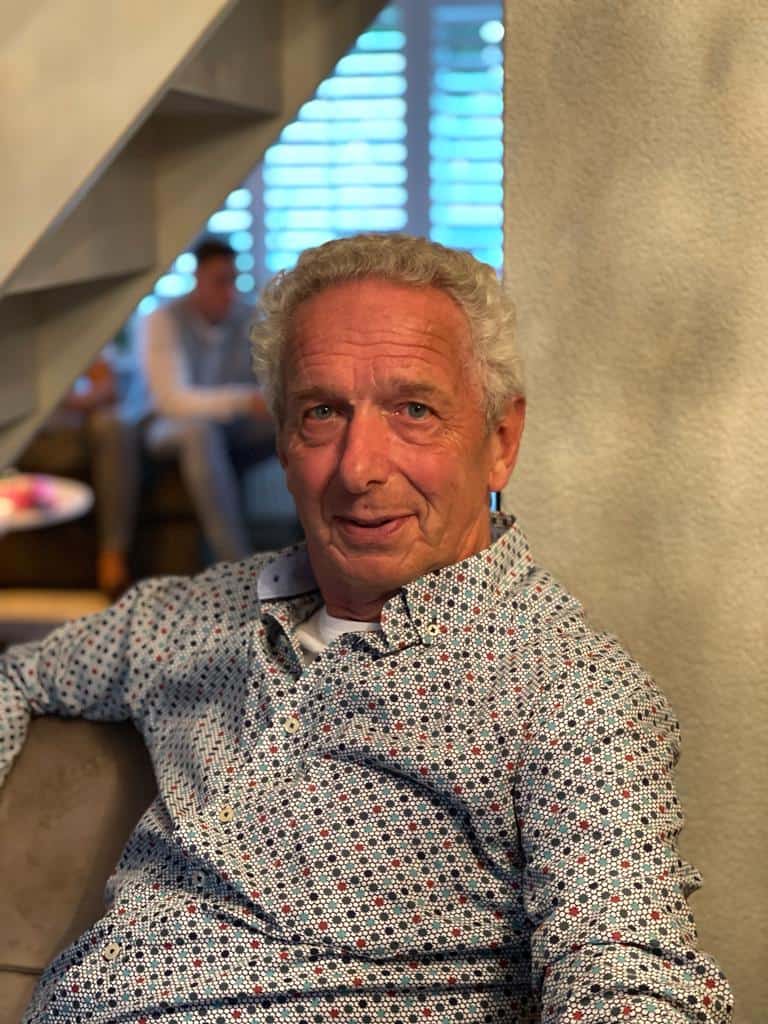In August 2018, I incidentally stroked my left breast. It was itchy, but suddenly I felt something hard. Felling again and again, it still was there. Something small and hard. A cyst perhaps? Probably not something to be worried about.
The day after it was still there. I knew men could get breast cancer, although the chance was very low. Just to be sure, I want to my family doctor. He wasn’t sure if it was a cyst, so we decided to wait two weeks in which time I went to holidays. When I returned that ‘thing’ didn’t grow in the meantime, but my doctor directed me to the hospital.
Within a couple of days, I had a mammogram and a sonogram of my breasts on both sides. The radiologist thought in the first case that it was a cyst but on one point he was doubtful.
Long story short, after a biopsy I received a diagnosis of breast cancer. Quite a shock but I knew the chance of survival was quite large.
The tumor was HER2-positive, so after the operation I would chemotherapy and after that, hormone therapy. A genetic test determined I was carrier of the CHEK-2 gene. That was for me a greater point of sorrow than the cancer itself. Would my son and daughter be a carrier too. As far as we know CHEK-2 doesn’t increase the chance for men getting breast cancer or another kind of cancer, but for women it does. And my son can pass it to his two young daughters. Our daughter did a test, and she is not a carrier. So that is a relief. Our son will be tested in 20 years, when his oldest daughter is 30. We all think that is the best time. Should he be investigated now and he was found to be a carrier, he has that knowledge for a long time, and would be unsure if his daughter would be a carrier, too.
Because of the CHEK-2 mutation, I decided to get a left breast mastectomy. If I had been a carrier of the BRCA-1 of -2 gene, I would have had my right breast removed as well.
I recovered well of the operation and after six weeks I started with the chemotherapy; 12 weeks, once a week. Because I wanted to prevent losing my hair, I choose a cooling cap for my scalp, which kept the hair on my head. I also had no trouble with side effects of both types of chemotherapy. After the nine weeks, once a week in the hospital for about half a day, the chemotherapy continued once every three weeks. I also started with hormone therapy, taking Tamoxifen every day for five years. Again, I had no trouble with side effects.
I realize that I am quite an exception to the rule. I hear and read a lot of people who have breast cancer (of course almost all women) and some of their stories are really bad. Also, the three men I personally know who had breast cancer tell me stories about being tired after a treatment and worse.
I am active in the Dutch patient support group, and I see it as my task to make men aware of the fact that breast cancer is not specifically a women’s disease. I gave several interviews on social media and with magazines and every time I get at least one reaction from a man, telling me he didn’t know that men can get it too. Every man that is aware, is a bonus.

